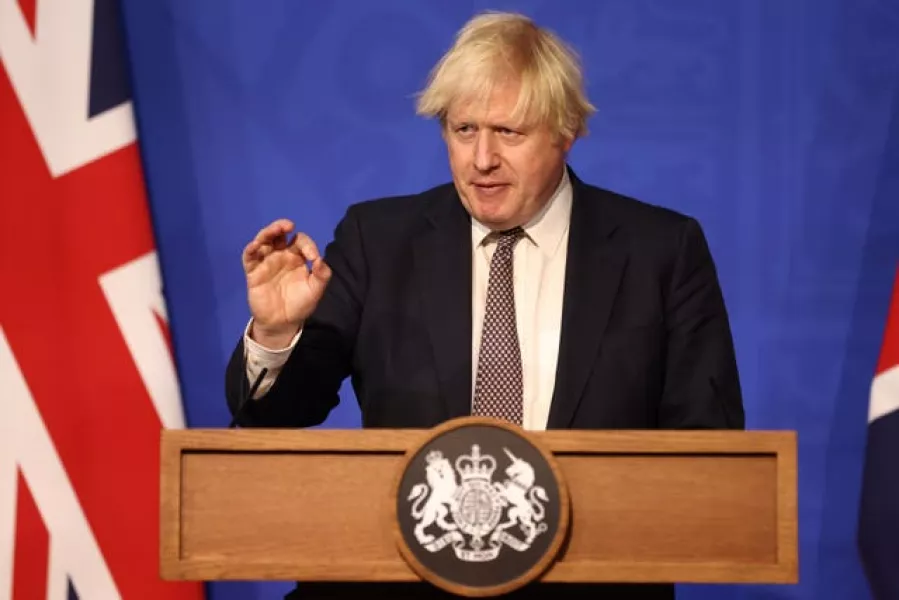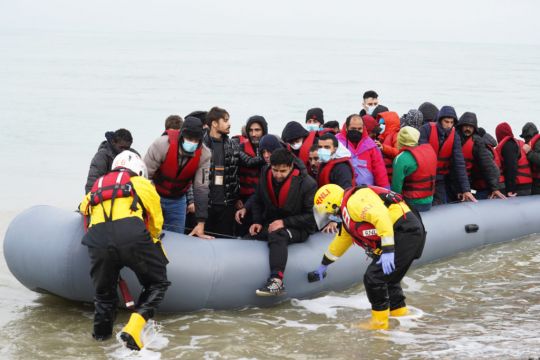Boris Johnson has increased his lobbying efforts for a returns agreement with Europe as a way to stem the flow of small boats crossing the Channel.
In a meeting with his Belgian counterpart, the British prime minister pushed for the creation of a UK-European Union returns agreement for failed asylum seekers in a bid to crackdown on people smuggling in the wake of dozens dying while attempting to cross the strait last week.
Downing Street, in its account of a video call on Tuesday with Belgian prime minister Alexander De Croo, said Mr Johnson “stressed the importance of breaking the business model of people traffickers by establishing a UK-EU returns agreement and using all the modern technology at our disposal”.
Constructive call with PM @borisjohnson. Belgium & the UK are historic allies, but we also have a lot common challenges today.
We agreed to strengthen bilateral cooperation, from fighting COVID-19 & climate change to preventing irregular migration. https://t.co/sronAXgxUi— Alexander De Croo 🇧🇪🇪🇺 (@alexanderdecroo) November 30, 2021
Advertisement
A No 10 spokeswoman added: “The leaders agreed that recent tragic incidents underscore the need to make urgent progress in this area.
“The prime minister reaffirmed the UK’s desire to work together with Belgium and other European partners to achieve this, and the leaders agreed their respective ministers should meet soon to progress this work.”
It comes after France said it would put forward proposals for tackling the Channel migrant crisis, with the country’s interior minister suggesting talks with the UK could resume following a diplomatic spat.
Gerald Darmanin has said prime minister Jean Castex will be writing to Mr Johnson on Tuesday with proposals for a “balanced agreement” between the UK and the EU.
Downing Street has continued to insist a returns agreement, as set out by Mr Johnson in a letter to French president Emmanuel Macron last week that infuriated Paris, would be the “single biggest deterrent” to migrants attempting the sea journey.

A returns agreement with the European Union would allow the UK to send people back to the member state where their journey had originated from, such as France or elsewhere, if their asylum claims are rejected after arriving in Britain.
London pushed for such an agreement during the Brexit talks, but Brussels turned the offer down.
The option is likely to be argued for again by the UK government should talks with France and other European nations about the migrant issue resume.
Mr Darmanin has said discussions could take place “very quickly” if the British are prepared to enter negotiations in a “serious spirit”.
A UK government source said it appeared to be a “positive” move after the diplomatic row which erupted following the capsizing of a migrant boat with the loss of 27 lives on Wednesday.

In the aftermath of the tragedy, Mr Johnson angered the Elysee Palace when he posted a letter on Twitter calling for joint patrols on French beaches and the return to France of migrants who succeed in making the dangerous Channel crossing.
Mr Macron said it was not a serious way to negotiate, while UK home secretary Priti Patel was disinvited from a meeting in Calais on Sunday of ministers from France, Belgium, the Netherlands and Germany to discuss the crisis.
But speaking at a press conference on Monday, Mr Darmanin said the two countries needed to work together to deal with a shared problem.
Mr Darmanin said the proposals by Mr Castex could include ways to open up legal routes to the UK and for asylum seekers and to allow unaccompanied minors to join relatives in Britain.
However he said France could not accept the practice of turning back boats at sea, adding “This is a red line for the French government.”







